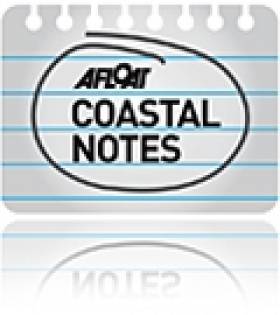Displaying items by tag: Drombeg
Providence Positive About Drombeg Prosect
#Oil&Gas - Providence Resources is talking positive about its Drombeg prospect off the south-west coast, as The Irish Times reports.
The site in the southern Porcupine Basin was surveyed last summer by the Polarcus Amani, said to be one of the greenest seismic vessels in the world, in what was one of the largest 3D seismic surveys yet carried out off Ireland.
And the preliminary results have revealed "seismic morphologies" that are "consistent with those of a large deep-water fan system".
What's more, the site has already "attracted expressions of interest from a number of major international oil companies," says Providence technical director John O'Sullivan.
The Irish Times has more on the story HERE.




























































